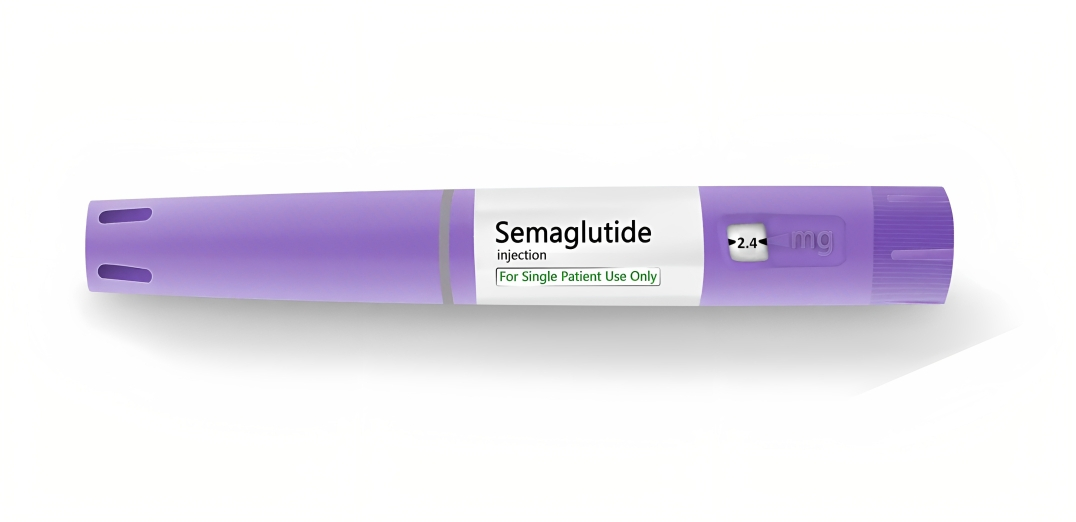The Ultimate Guide to Weight Loss with Semaglutide


Weight loss is a journey that countless individuals embark on, often seeking effective and sustainable solutions to achieve their goals. Among the myriad of options available, semaglutide has emerged as a promising medication for weight loss. In this comprehensive guide, we will delve into what semaglutide is, how it works, its benefits, potential side effects, and tips on integrating it into a weight loss regimen.
What is Semaglutide?
Semaglutide is a medication originally developed to treat type 2 diabetes. It belongs to a class of drugs known as GLP-1 receptor agonists, which mimic the hormone glucagon-like peptide-1 (GLP-1) that the body naturally produces. GLP-1 plays a crucial role in regulating blood sugar levels, but it also has significant effects on appetite and weight control.
Semaglutide is available in two primary forms: an injectable solution (Ozempic and Wegovy) and an oral tablet (Rybelsus). While Ozempic is primarily prescribed for diabetes management, Wegovy has been specifically approved by the FDA for chronic weight management.
How Does Semaglutide Work for Weight Loss?
The mechanism by which semaglutide aids in weight loss is multifaceted:
Appetite Suppression: Semaglutide interacts with the brain's appetite centers, reducing hunger and promoting a feeling of fullness. This can lead to decreased caloric intake and, consequently, weight loss.
Slowed Gastric Emptying: The medication slows down the rate at which food leaves the stomach, prolonging the sensation of fullness and reducing the desire to eat between meals.
Improved Insulin Sensitivity: By enhancing the body's response to insulin, semaglutide helps stabilize blood sugar levels, which can prevent the spikes and crashes that often lead to overeating.
Regulation of Blood Sugar: Maintaining stable blood sugar levels can reduce cravings for high-sugar and high-fat foods, contributing to healthier eating habits.
Clinical Evidence Supporting Semaglutide for Weight Loss
Several clinical trials have demonstrated the effectiveness of semaglutide for weight loss. One of the most notable studies is the STEP (Semaglutide Treatment Effect in People with obesity) program, which involved multiple trials assessing the medication's impact on weight reduction in individuals with obesity or overweight.
In the STEP 1 trial, participants who received semaglutide lost an average of 15% of their body weight over 68 weeks, compared to 2.4% in the placebo group. This significant weight loss was accompanied by improvements in cardiovascular health markers and quality of life.
Benefits of Semaglutide for Weight Loss
The benefits of semaglutide extend beyond just shedding pounds. Here are some key advantages:
Sustained Weight Loss: Unlike many weight loss interventions that yield temporary results, semaglutide has shown potential for long-term weight management.
Improved Metabolic Health: Weight loss achieved with semaglutide is often accompanied by reductions in blood pressure, cholesterol levels, and inflammation, which collectively improve overall metabolic health.
Enhanced Quality of Life: Weight loss can lead to improved mobility, reduced pain, and a greater sense of well-being, all of which contribute to a better quality of life.
Reduction in Comorbidities: For individuals with obesity-related conditions such as type 2 diabetes, sleep apnea, and cardiovascular disease, weight loss with semaglutide can lead to significant improvements or even remission of these conditions.
Potential Side Effects of Semaglutide
As with any medication, semaglutide comes with potential side effects. While not everyone will experience these, it's important to be aware of them:
Gastrointestinal Issues: Nausea, vomiting, diarrhea, and constipation are common side effects, particularly when starting the medication or increasing the dose.
Pancreatitis: There is a risk of developing pancreatitis, a potentially serious inflammation of the pancreas. Symptoms include severe abdominal pain, nausea, and vomiting.
Gallbladder Problems: Some individuals may experience gallbladder issues, including gallstones.
Kidney Problems: Semaglutide can affect kidney function, so individuals with pre-existing kidney conditions should use it with caution.
Allergic Reactions: Although rare, allergic reactions such as rash, itching, and difficulty breathing can occur.
It's essential to discuss these potential side effects with a healthcare provider and weigh them against the benefits of weight loss when considering semaglutide.
Who Should Consider Semaglutide for Weight Loss?
Semaglutide may be a suitable option for individuals who meet the following criteria:
Obesity or Overweight: Generally, semaglutide is recommended for individuals with a body mass index (BMI) of 30 or higher, or a BMI of 27 or higher with at least one weight-related comorbidity such as type 2 diabetes, hypertension, or dyslipidemia.
Inadequate Response to Lifestyle Interventions: Those who have struggled to achieve significant weight loss through diet and exercise alone may benefit from the added support of semaglutide.
Commitment to Long-Term Use: Semaglutide is most effective when used as part of a long-term weight management strategy, which includes dietary changes, physical activity, and behavioral modifications.
How to Integrate Semaglutide into a Weight Loss Plan
For optimal results, semaglutide should be integrated into a comprehensive weight loss plan. Here are some tips to help you get started:
Consult a Healthcare Provider: Before starting semaglutide, it's crucial to consult with a healthcare provider who can assess your suitability for the medication and provide guidance on its use.
Adopt a Balanced Diet: Focus on a diet rich in whole foods, including fruits, vegetables, lean proteins, and whole grains. Avoid processed foods, sugary beverages, and excessive amounts of saturated fats.
Engage in Regular Physical Activity: Aim for at least 150 minutes of moderate-intensity exercise per week, such as brisk walking, cycling, or swimming. Incorporate strength training exercises to build muscle and boost metabolism.
Monitor Progress: Keep track of your weight, dietary intake, and physical activity to monitor your progress and make adjustments as needed.
Stay Hydrated: Drink plenty of water throughout the day to stay hydrated and support your body's metabolic processes.
Manage Stress: High stress levels can contribute to overeating and weight gain. Practice stress management techniques such as mindfulness, meditation, or yoga.
Seek Support: Consider joining a weight loss support group or working with a registered dietitian or weight loss coach for additional guidance and motivation.
Real-Life Success Stories
Hearing about real-life success stories can be inspiring and motivating. Here are a couple of examples of individuals who have achieved significant weight loss with semaglutide:
Sarah's Journey: Sarah, a 42-year-old mother of two, struggled with obesity for most of her adult life. After trying various diets and exercise programs with limited success, she started using semaglutide under her doctor's supervision. Within a year, Sarah lost 40 pounds and saw improvements in her blood pressure and energy levels. She now enjoys a more active lifestyle and feels more confident in her appearance.
John's Transformation: John, a 55-year-old office worker, had a BMI of 35 and was diagnosed with type 2 diabetes. His doctor recommended semaglutide as part of his diabetes management plan. Over 18 months, John lost 50 pounds and was able to reduce his diabetes medication. He credits semaglutide for helping him regain control of his health and well-being.
Conclusion
Semaglutide offers a promising solution for individuals struggling with obesity and weight-related health issues. Its ability to suppress appetite, improve insulin sensitivity, and support sustainable weight loss makes it a valuable tool in the fight against obesity. However, it's essential to approach semaglutide as part of a holistic weight loss plan that includes dietary changes, physical activity, and behavioral modifications.
If you're considering semaglutide for weight loss, consult with a healthcare provider to determine if it's the right option for you. With the right support and commitment, semaglutide can be a powerful ally in achieving and maintaining a healthier weight.
Innovative
Revolutionary program utilizing compounded semaglutide and tirzepatide.
© 2024. All rights reserved.
Proudly sponsored by Phentermineclinic.com
Text us: toll free 8332330869
or 4044361362
